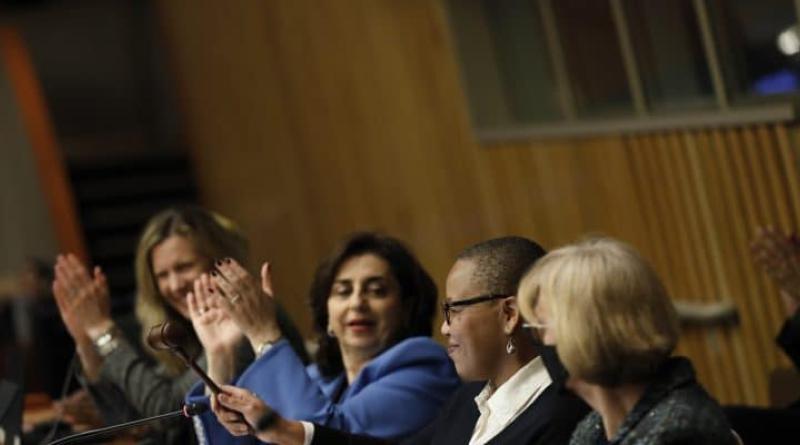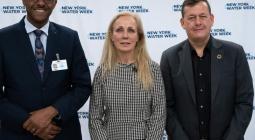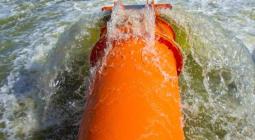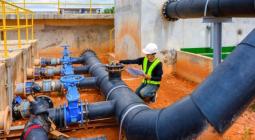The United Nations (UN) will soon launch a "Water Action Programme". This is one of the outcomes of the UN Water Conference, which took place from 22 to 24 March 2023 in New York, USA. Several African countries have already made voluntary commitments to this programme, which will help to close the water management gap. Among other commitments, the establishment of integrated and intelligent policies for enhanced cooperation.
The United Nations (UN) Water Conference 2023 will have provided an opportunity to assess the actions of states in support of Sustainable Development Goal 6 (SDG6), which aims to achieve universal access to water by 2030 worldwide. More than eight years after the UN set this MDG, 418 million Africans still do not have access to even basic drinking water. The other continents of the world, notably Asia and (Latin) America, are lagging behind.
For UN Secretary-General António Guterres, all hope now lies in our ability to set a new course based on science. For example, the ‘Water Agenda’ will be set up to identify voluntary water-related commitments and monitor their progress.
Over $300 billion for the future agenda
On 24 March 2023, during his closing speech at the conference in New York, USA, Guterres announced that he had already counted 689 commitments. The registration of commitments to the “Water Agenda” will run until 1 May 2023. A report on the global review of SDG 6 will be made in July 2023, at the UN Economic and Social Council’s High Level Political Forum (ECOSOC).
The UN-Water mechanism will accompany the implementation of this inspiring, collaborative, transboundary and transformative agenda for sustainable development and resilience, for which more than $300 billion was pledged at the New York conference “with the potential to unlock at least $1 trillion in socio-economic and ecosystem gains,” said UN General Assembly President Csaba Kőrösi.
Countries will need to use this funding to strengthen water as a basic human right, including reducing pressures on their water systems and ensuring sound decision-making and smart policies. “Seychelles is committed to investing more in sustainable solutions and ecosystem conservation. The country has already placed 50% of its limited land area and over 30% of its ocean space under protection,” said Ian Madeleine, Seychelles’ Ambassador and Permanent Representative to the UN at the conference.
Read Also – AFRICA: Resource and source of life, water at the heart of sustainable development
In Rwanda, the government is conducting a study on transboundary rivers with neighbouring countries to strengthen water supply, said Claver Gatete, Rwanda’s representative to the UN. According to the international organisation, close transboundary cooperation between riparian countries can contribute to sustainable and equitable management of water, which is often a source of tension at borders.
The world’s governments will also need to develop new alternative food systems to limit unsustainable water use in food production and agriculture, build resilient infrastructure, drinking water systems, drinking water plants and wastewater treatment plants.
A new global water information system
In each country, it will also be important to know the available resources and to quantify them, to educate the populations on the place of water in sustainable development, as ignorance prevents good governance of water resources. It will also be necessary to develop small-scale irrigation and to include women and indigenous populations in decision-making.
In addition to the “Water Agenda”, the UN will design and deploy a new global water information system that will allow real-time forecasting of water needs and guide plans and priorities between now and 2030. Other follow-up actions are under consideration, including the appointment of a special envoy for water, which a majority of speakers called for during the general debate at the New York conference. The aim, said Guterres, is to put water at the forefront of the Summit on Sustainable Development Goals in September 2023 and the Summit of the Future in 2024.
Also with a view to achieving water security by 2030, the “Freshwater Challenge” was launched at the UN Water Conference by a coalition of six governments (Colombia, Democratic Republic of Congo [DRC], Ecuador, Gabon, Mexico and Zambia). The initiative aims to restore 300,000 km of rivers and 350 million wetlands around the world.
Inès Magoum






